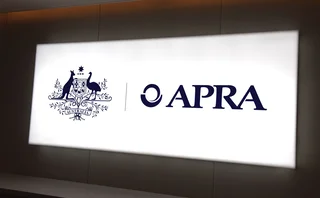
Credit derivatives in Asia need liquidity boost
Growth in activity of Asia’s credit derivatives business cannot be reached until Asian credit markets see deeper liquidity and higher turnovers in the secondary market, said a senior PricewaterhouseCoopers (PwC) consultant, speaking at a press conference in Hong Kong yesterday.
He added that the definitions of credit events as provided by Isda (International Swaps and Derivatives Association) documentation continue to be an obstacle. For example, bankruptcy - the primary credit event - is of particular interest in Asia, where countries such as Indonesia have no bankruptcy laws.
“In the past there have been credit derivatives written on companies in Indonesia which say that if an Indonesian company goes bankrupt, we will pay out. Having said that, Indonesia does not have any bankruptcy law and therefore even if an Indonesian company - in theory - went bankrupt, as there is no actual law in place, the credit derivatives couldn’t be invoked and the result for the bank which took out the position would be that the bank did not get paid,” said Davies.
However, Duncan Fitzgerald, partner, financial services division for PwC, also speaking at the conference, said that Asian countries, such as Hong Kong, are advantaged by their late arrival into the market, as they are able to learn from the mistakes made by their counterparts in Europe and the US.
“The old adage 'first to market is not always best', is true. So, the fact that Hong Kong is waiting for its global allies in Europe and the US - from the market perspective - to sort the systems issues out first… [means] Hong Kong will be able to learn from those issues and actually have better systems. I’m not particularly worried that Hong Kong is less developed than its global counterparts, and indeed it may be an advantage,” he said.
PricewaterhouseCoopers believes that as more participants enter the market, including banks, dealers, insurance companies, investment companies, investment funds and hedge funds, the global volume of credit derivatives is expected to reach US$1.6 trillion of notional value by 2002.
Only users who have a paid subscription or are part of a corporate subscription are able to print or copy content.
To access these options, along with all other subscription benefits, please contact info@risk.net or view our subscription options here: http://subscriptions.risk.net/subscribe
You are currently unable to print this content. Please contact info@risk.net to find out more.
You are currently unable to copy this content. Please contact info@risk.net to find out more.
Copyright Infopro Digital Limited. All rights reserved.
As outlined in our terms and conditions, https://www.infopro-digital.com/terms-and-conditions/subscriptions/ (point 2.4), printing is limited to a single copy.
If you would like to purchase additional rights please email info@risk.net
Copyright Infopro Digital Limited. All rights reserved.
You may share this content using our article tools. As outlined in our terms and conditions, https://www.infopro-digital.com/terms-and-conditions/subscriptions/ (clause 2.4), an Authorised User may only make one copy of the materials for their own personal use. You must also comply with the restrictions in clause 2.5.
If you would like to purchase additional rights please email info@risk.net
More on Regulation
Iosco pre-hedging review: more RFQs than answers
Latest proposals leave observers weighing new clampdown on pre-hedging
FCMs welcome CFTC margin rule ring-fencing clarification
Final rule on separate accounts replicates no-action relief as Republicans strip out gold plate
Stuck in the middle with EU: dealers clash over FRTB timing
Largest banks want Commission to delay implementation, but it’s not the legislator’s only option
Treasury clearing timeline ‘too aggressive’ says BofA rates head
Sifma gears up for extension talks with incoming SEC and Treasury officials
Rostin Behnam’s unfinished business
Next CFTC chair must finish the work Behnam started on crypto regulation and conflicts of interest
European Commission in ‘listening mode’ on potential FRTB changes
Delay or relief measures on the table after UK postpones start of Basel III to 2027
Australian FRTB projects slow down amid scheduling uncertainty
Market risk experts think Apra might soften NMRF regime to spur internal model adoption
EBA to address double-counting caused by new capital floor
Existing EU capital add-ons for model risk would duplicate new Basel floor on internal models







